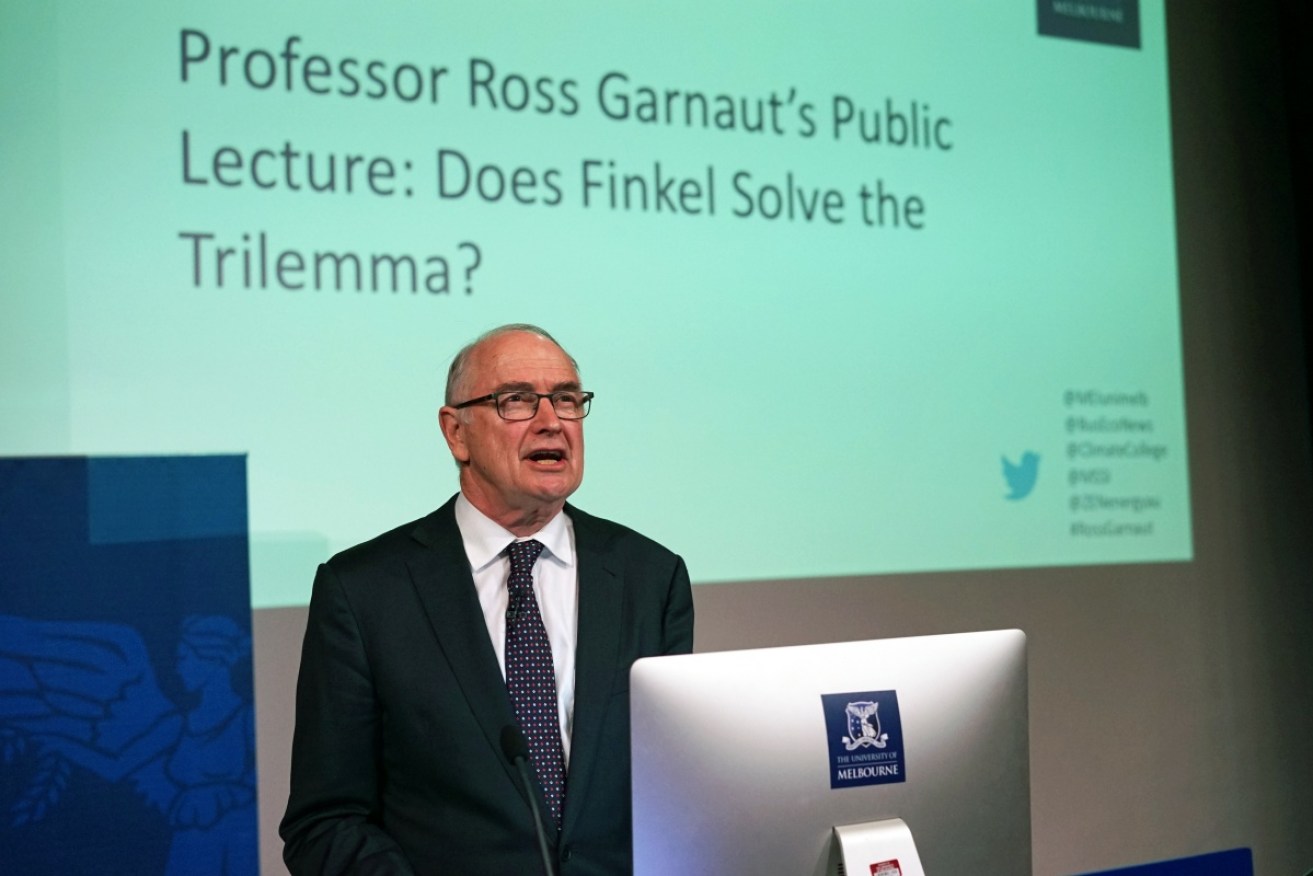Ross Garnaut: ‘Australia can be an energy superpower’


Ross Garnaut speaks at a lecture. Photo: David Ross
Ross Garnaut says Australia is being held back by those with “ideological or vested interests in old ways of supplying energy”.
In a public lecture on Monday night, the leading economist – who has authored two influential climate change reports – said renewable energy is key to securing the nation’s economic future.
“Australia can become the energy superpower of the low-carbon world economy,” he told the audience at The University of Melbourne.
Professor Garnaut predicted that power prices would fall as renewable energy formed a greater chunk of the energy market: “Wholesale electricity prices could be lowered not just from current levels, but to prices that are notably low by global standards.”
The lecture was Professor Garnaut’s official response to the Finkel review, commissioned by the Turnbull government.
He said Australia could only solve its energy woes by implementing the changes recommended by the Finkel review – which are now stuck in limbo in the Coalition party room.
But he said Dr Alan Finkel’s proposed Clean Energy Target did not go far enough to cut emissions. He described it as a “halfway house” between the existing renewable energy target and a full emissions intensity scheme.
The Finkel report would go some way to support energy security, but if the clean energy target were stronger it could bring about lower prices faster, Professor Garnaut said.
He presented a graph that projected power prices would peak as coal power plants close, but trend downwards in the long run because of the low cost of renewables.
He said although the closure of uncompetitive coal plants and the offshoring of Australian gas have seen peak prices spike, these problems could be solved by coupling renewables with battery storage systems – such as those developed by his company, ZEN.
“The withdrawal of a large amount of supply capacity has compounded the massive upward pressure on prices from the Australian domestic gas crisis and incomparably high network costs and retail margins,” he said.
“Storage and demand management technologies allow distributed generation and storage to take the peaks off demand.”
But he cautioned against moves to reintroduce government investment in the energy industry, pointing to such proposals as the Turnbull government’s Snowy 2.0 and South Australia’s proposed $360 million gas-fired generator.
“There is no doubt that public-private investment will give us the worst of both worlds.”
He blamed Australia’s energy crisis on a lack of competition in the energy market and a lack of planning for the inevitable transition from fossil fuel generation to renewables.
Professor Garnaut pointed to the current process where energy companies “bid” for energy in the grid as “handicapping technologies that are capable of responding quickly to and therefore removing imbalances between supply and demand”.
“Policy-makers and the grid rule-maker failed to see the implications for individual regions of uniform national incentives to increase solar and wind generation.”
Professor Garnaut was awarded a Companion in the Order of Australia this year for his contributions to energy efficiency and climate change policy.
He was an economic adviser to Bob Hawke, Australian ambassador to China, and a climate change adviser to Kevin Rudd.









